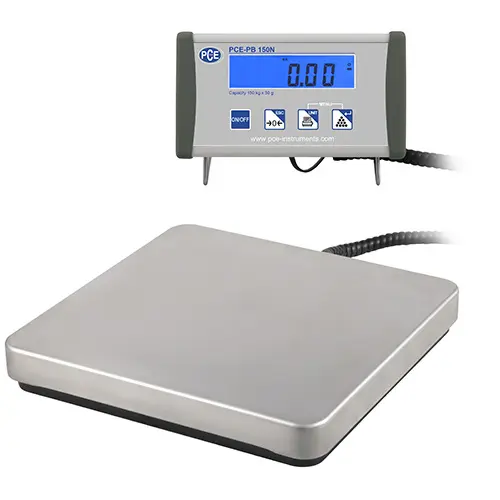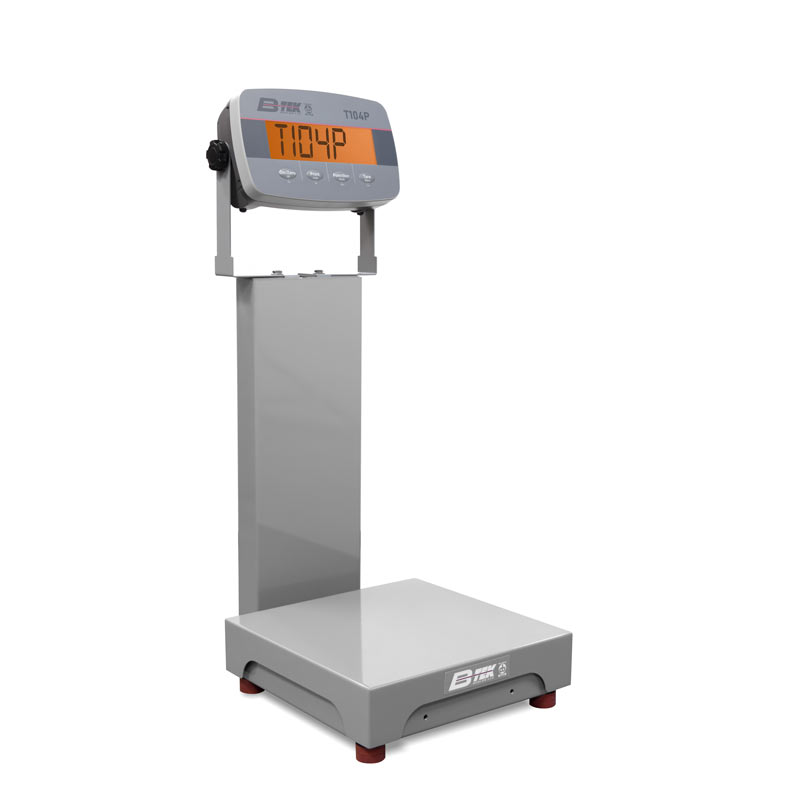The Advantages of Buying Quality Industrial Scales for Effectiveness
The Advantages of Buying Quality Industrial Scales for Effectiveness
Blog Article
How Commercial Scales Improve Accuracy in Manufacturing and Logistics
Industrial scales are indispensable to the precision called for in manufacturing and logistics, as they straight influence the precision of weight dimensions vital for reliable production and stock methods. Industrial Scales. By making certain that products are considered precisely, companies can minimize mistakes that can bring about considerable monetary repercussions. The introduction of sophisticated innovations in weighing systems is changing conventional procedures. Recognizing the complete level of these improvements and their implications for future procedures invites a better examination of just how developing practices can redefine accuracy criteria in the market.
Importance of Precision in Procedures
In the realm of production and logistics, precision is the cornerstone of functional efficiency. Precise measurements are crucial for preserving top quality control, maximizing source allotment, and ensuring conformity with market requirements. When operations count on exact information, organizations can decrease waste, enhance manufacturing timelines, and enhance overall productivity.
The relevance of accuracy extends past simple dimension; it also affects decision-making procedures. Precise weight readings can determine suitable stock degrees, enhance supply chain logistics, and facilitate accurate invoicing. Furthermore, inaccuracies in measurements can result in pricey mistakes, such as overproduction or ignoring material demands, which can jeopardize job timelines and earnings.
Additionally, accuracy in operations cultivates a society of responsibility and quality control. By implementing extensive dimension criteria, companies can determine ineffectiveness and enact renovations, inevitably resulting in enhanced customer complete satisfaction. In an age where competition is fierce, the capability to provide product or services with accuracy can be a distinct element that establishes a company apart. Thus, buying accuracy measurement devices, such as commercial scales, is not simply a technical consideration however a strategic crucial for success in the production and logistics markets.
Types of Industrial Scales
Various kinds of commercial scales play an important function in achieving the precision essential for reliable production and logistics procedures. Each kind is made to fulfill specific needs, guaranteeing precise dimension of components, items, and materials.
One usual type is the system scale, which provides a flat surface for evaluating big things or bulk products. An additional kind is the bench scale, generally smaller and utilized for evaluating individual packages or smaller batches of products.
For applications where precision is critical, analytical balances are used. These high-accuracy scales are utilized in research laboratories and research study settings to determine little amounts with utmost precision. Floor scales, developed for sturdy weighing, are excellent for weighing huge pallets or containers, often integrated with forklifts for performance.
In addition, tons cells are made use of in various applications for real-time weight dimension and information collection. Each of these scales adds distinctively to the functional efficiency, guaranteeing that services can keep accuracy throughout their production and logistics procedures. Understanding the sorts of commercial scales is necessary for maximizing efficiency and attaining operational quality.

Influence On Inventory Monitoring
Exact evaluating is news crucial for efficient stock administration, as it straight influences stock accuracy and functional performance. In production and logistics, precise dimension of products and products makes sure that supply records show real supply degrees, reducing discrepancies that can result in overstocking or stockouts. Industrial scales provide the required accuracy to weigh products properly, making it possible for organizations to maintain a trusted inventory system.
Furthermore, exact weighing adds to much better projecting and preparation. With exact data on stock levels, organizations can make educated choices pertaining to purchase and manufacturing routines. This reduces the danger of excess supply, which can connect up capital and boost storage prices, in addition to avoid scarcities that might interfere with operations.
Furthermore, the assimilation of industrial ranges with inventory monitoring systems facilitates real-time monitoring of supply motions. This streamlines the procedure of upgrading supply documents, boosting transparency and liability throughout the supply chain. Ultimately, precise evaluating not just sustains reliable inventory management yet also drives total operational performance, allowing organizations to react swiftly to market demands and maintain a competitive edge in their respective markets.
Enhancing Quality Assurance
Effective supply management not only guarantees optimal stock degrees but likewise lays the groundwork for durable quality assurance procedures. Industrial ranges play an essential duty in boosting quality assurance by giving accurate weight dimensions that are important for maintaining product stability. Consistent weight verification enables manufacturers to follow specs, guaranteeing that each item satisfies the required quality criteria.
In high-stakes atmospheres, such as food manufacturing or pharmaceuticals, even small weight discrepancies can cause substantial compliance problems. By incorporating industrial ranges right click this into the manufacturing line, firms can check item weights in real time, permitting immediate rehabilitative activities if abnormalities are discovered. This aggressive strategy minimizes waste and improves overall item integrity.
In addition, accurate considering assists in much better formula of basic materials, which is critical in industries such as chemicals and cosmetics. By ensuring that active ingredient proportions continue to be constant, makers can accomplish exceptional item quality, enhancing consumer fulfillment and minimizing returns.
Future Patterns in Evaluating Technology
The future of considering innovation is poised for significant innovations driven by automation, connectivity, and data analytics. As sectors develop, the assimilation of advanced sensors and IoT (Net of Things) abilities will certainly enable real-time monitoring and coverage of weight information. This connection will not only improve operational effectiveness but additionally assist in predictive upkeep, reducing downtime and improving efficiency.
Furthermore, the unification of synthetic intelligence and artificial intelligence algorithms into evaluating systems will certainly boost information analysis capacities. These technologies can identify patterns and anomalies, permitting even more informed decision-making and optimized supply chain monitoring. The increase of cloud-based solutions will allow seamless data sharing across platforms, ensuring that stakeholders have access to current details at all times.
Sustainability will additionally play a vital function in future evaluating technology. As organizations strive to minimize their carbon impact, weighing systems that integrate energy-efficient designs and materials will end up being increasingly vital. Furthermore, advancements in electronic evaluating see this ranges will sustain much better source monitoring by giving exact dimensions that reduce waste.
Final Thought
In verdict, commercial ranges substantially boost accuracy in manufacturing and logistics by supplying accurate weight measurements important for reliable procedures. Their role in inventory management, quality assurance, and assimilation with sophisticated technologies highlights their significance in minimizing disparities and enhancing resource allocation. As industries remain to advance, the fostering of innovative weighing solutions will additionally sustain functional efficiency and minimize waste, ultimately adding to enhanced performance and competition on the market.
One common type is the system scale, which provides a level surface for weighing big products or bulk products. Another type is the bench scale, normally smaller sized and used for evaluating individual plans or smaller batches of items. Flooring ranges, created for durable considering, are optimal for evaluating huge pallets or containers, usually integrated with forklifts for effectiveness.
Industrial ranges provide the required accuracy to weigh items properly, enabling businesses to maintain a trustworthy stock system.

Report this page